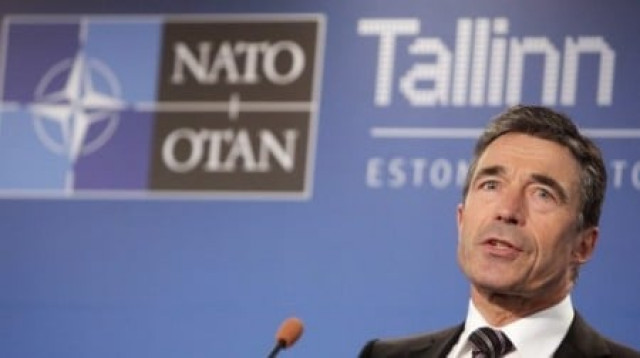NATO agrees to Afghan plan

Nato Secretary-General Anders Fogh Rasmussen said it would be a gradual process based on conditions, not a timetable, and stressed the need for allies to provide more personnel to train Afghan forces so they can take over security themselves.
"It will not be a pullout. It will not be a run for the exit," Rasmussen told a news conference after a meeting of Nato foreign ministers in the Estonian capital, Tallinn.
The Afghan government's past failure to deliver services and security in areas from which the Taliban have been pushed out is seen as a major threat to Nato strategy and the aim of cutting a foreign troop commitment that now exceeds 120,000.
"What will happen is that we hand over lead responsibility to the Afghans and our soldiers will then move into a more supportive role, but I foresee that the Afghan security forces will need our supportive assistance for quite some time," Rasmussen said. "So it will be a gradual process."
Nato's 28 members backed a plan by US President Barack Obama last year for a substantial boost in international troop numbers to allow time to train Afghan forces.
Obama's aim was to allow Washington to begin pulling some US troops out of the country by July 2011, a goal that has always appeared ambitious given a widening Taliban insurgency.
More trainers needed
There is scepticism among people in many of the alliance's member countries about whether and when an operation in its ninth year since the September 11, 2001, attacks will stabilise the country, defeat the Taliban and allow their troops to come home.
US Secretary of State Hillary Clinton said Washington was pleased by its allies' promises of more troops and trainers and believed with the right support Afghan forces were "perfectly capable" of defending the nation against insurgents.
"Does that mean that it will be smooth sailing? I don't think so," Clinton told reporters. "Look at Iraq. The Iraq military is certainly proving itself to be a capable force inside Iraq yet it is unfortunately too easy for cowardly terrorists to set off bombs."
"So I don't think we should expect the Afghans to meet an impossible standard, but what we can expect and what we are working towards achieving, is an Afghan national security force -- military and police -- that is able to protect the people and create a sense of confidence in their capacity," she said.
Rasmussen told the Nato meeting the alliance was still short of 450 personnel to train Afghan security forces.
Nato officials have said that if Afghan security forces are to reach a target of 300,000 personnel in 2011, at least 1,000 more trainers will be needed on top of Rasmussen's figures.
Rasmussen said ministers had agreed on conditions that have to be met to allow a "sustainable but irreversible" transition that Nato aims to start in more secure districts this year.
"We will hand over responsibility when the Afghans are actually capable to take responsibility," he said. "We will stay in Afghanistan as long as it takes to finish our job, but of course, it's not forever."


















COMMENTS
Comments are moderated and generally will be posted if they are on-topic and not abusive.
For more information, please see our Comments FAQ